Diving Sites in Port Blair



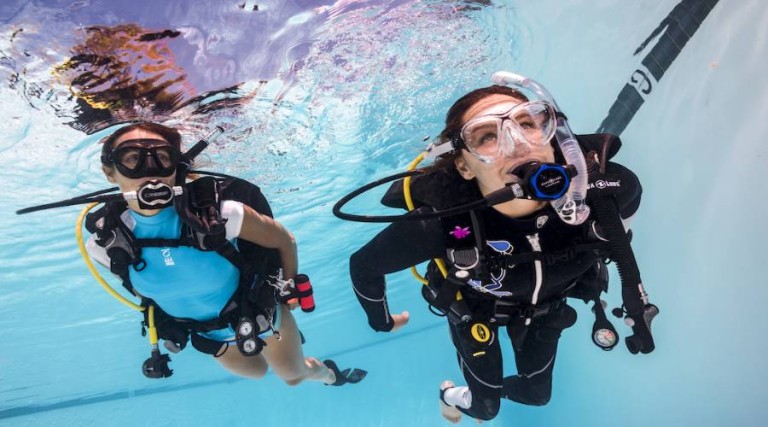
-
Aug 01, 2023
Have you ever been so enthralled by the calming blue hues of the ocean that you felt your stress melt away, replaced by tranquillity? In a world constantly moving at breakneck speed, the deep-sea serenity offers an unmatched sense of relaxation. Traditional therapy, yoga, mindfulness, and meditation are known modalities to help manage stress and maintain mental well-being.
However, there is an extraordinary and profoundly therapeutic activity that you might not have considered - diving As it turns out, this is not merely a subjective observation. Studies suggest that diving can serve as a powerful form of therapy, helping with various physical and mental health conditions. Let's plunge into the depths of this topic.
Diving - An Underwater Adventure
Diving, as an adventure sport, takes you to a different world altogether - a world filled with tranquillity, beauty, and awe-inspiring marine life. Whether it's scuba diving, freediving, or snorkelling, the effect it has on the mind and body can be truly therapeutic. As you descend into the underwater world, the surface noises fade away, replaced by your rhythmic breathing and the soothing sound of the ocean. The serene, weightless environment offers a form of mindfulness that is hard to replicate elsewhere.
Diving as Therapy: Therapeutic Benefits of Diving
Physical wellness: Diving is a full-body workout. It helps in enhancing your physical strength, flexibility, and stamina. The resistance from the water makes your muscles work harder than they would on land, providing low-impact but effective strength training. It also improves cardiovascular health, enhances lung capacity, and promotes overall fitness.
Mental Health Benefits: Diving has an array of benefits for mental well-being. It is a mindfulness practice in disguise. The focus on breath control - inhaling and exhaling slowly and deeply - mirrors many relaxation techniques used in yoga and meditation. It reduces stress and anxiety, promoting feelings of calm and peace.
Furthermore, the beautiful sights of colourful coral reefs, curious fishes, and the vast oceanic panorama can evoke feelings of awe and wonder, stimulating the release of happiness hormones, such as dopamine and serotonin.
Environmental Connection: Being immersed in the natural environment of the ocean can foster a deep connection with nature, enhancing your environmental consciousness. Observing the diverse marine life and their interplay can instil a sense of humility and appreciation for the environment.
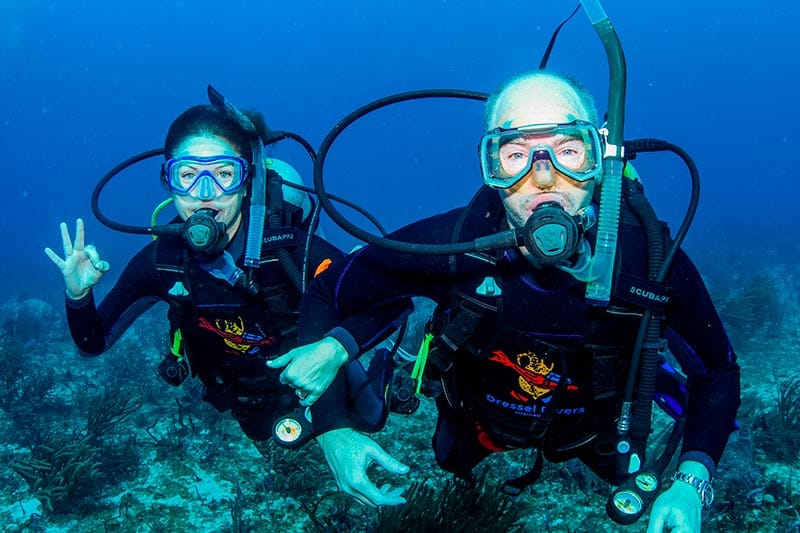
Diving as Therapy: The Science of Diving
The Physiology of Diving: Diving exposes the body to unique physiological changes that may help promote physical healing. The increased pressure underwater can enhance the circulatory and respiratory systems. According to a study published in the European Journal of Applied Physiology, diving increases the body's production of nitric oxide, a molecule that helps to expand blood vessels and improve blood flow to the organs.
Underwater, the gravity is less, which allows individuals with certain physical conditions, such as spinal cord injuries, arthritis, or amputations, freedom of movement they might not experience on land. This provides a sense of liberation and empowerment, contributing significantly to their psychological well-being.
The Mental and Emotional Impacts: Diving is not only a physical activity; it also promotes mental and emotional well-being. A seminal study by the University of Sheffield and James Cook University found that viewing underwater scenes, even in videos, significantly reduces feelings of stress and anxiety. It suggests that diving could be therapeutic, especially for those suffering from psychological issues like depression, anxiety, and post-traumatic stress disorder (PTSD).
The tranquillity of the underwater environment, the beautiful marine life, and the rhythmic sound of one's breath - all these elements contribute to the reduction of stress and promote a sense of peace and mindfulness, which is akin to meditation.
The Emergence of Therapeutic Diving Programs: Recognising the potential of diving as therapy, various organizations have started offering therapeutic diving programs. There are many programs worldwide like Deptherapy, Diveheart, and Wounded Warrior Project that provide scuba diving experiences and training to veterans and people with disabilities.
Anecdotal evidence from these programs suggests significant improvements in the participants' physical and mental health. For example, in a study on veterans with spinal cord injuries, participants reported increased mobility, decreased pain, and improved mental health after participating in a therapeutic diving program.
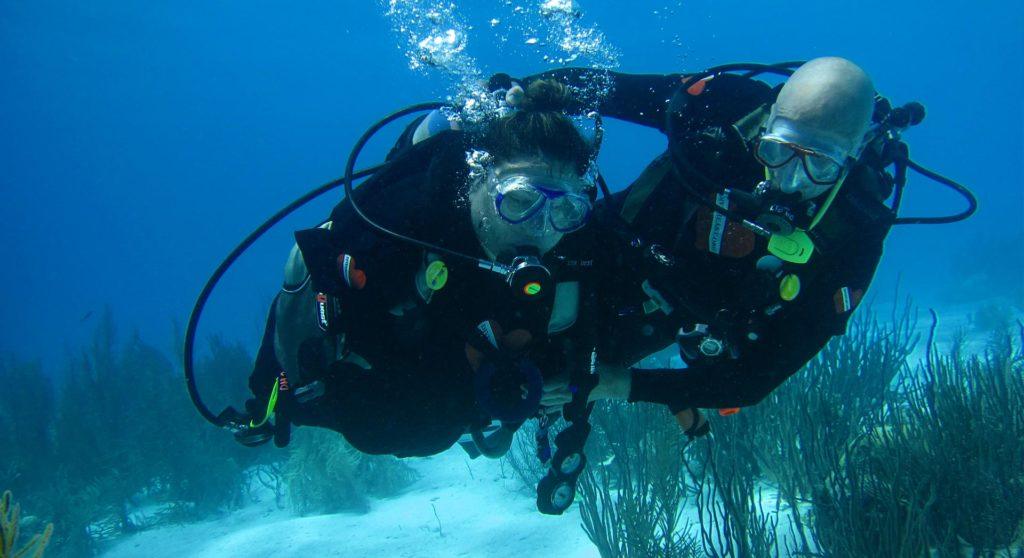
The Benefits of Being Part of a Diving Community
Diving as therapy also fosters social connections, as it is typically conducted in groups. The sense of camaraderie experienced in these situations can alleviate feelings of loneliness and promote a sense of belonging. According to a study conducted by the University of California, social engagement through activities like diving can contribute to improved mental health and overall life satisfaction.
Diving as Therapy: How to Get Started
Whether you're seeking a unique form of therapy or simply craving adventure, diving is a fantastic choice. However, diving is not something one can just plunge into without preparation. From understanding your health and physical fitness to getting certified, there are several steps involved.
This guide will help you navigate the process and get started on your journey towards diving.
Assess Your Health and Fitness: Before embarking on any physical activity, it's crucial to assess your fitness level. Diving, in particular, requires a fair degree of physical strength and stamina, as well as mental preparedness. You should be comfortable in the water and able to swim, although you don't have to be an expert swimmer.
However, certain health conditions can pose risks while diving, such as respiratory or cardiovascular diseases. Therefore, it's essential to have a medical check-up before you start training. Most diving organizations will require a medical form filled out by your doctor.
Research and Choose a Diving Course: Next, you'll need to choose a diving course that suits your needs and goals. There are many courses available for beginners such as PADI (Professional Association of Diving Instructors). PADI offers comprehensive training and certification programs for all levels of divers, from beginners to professionals.
Start with Discover Scuba Diving: For those who are not sure if diving is for them or just want to experience what it's like to breathe underwater, PADI offers the Discover Scuba Diving program. This is a quick and easy introduction to what it takes to explore the underwater world. You'll learn basic safety guidelines and skills under the direct supervision of a PADI Professional. Although this is not a certification course, it gives you hands-on experience and can help you decide whether you wish to pursue a certification.
Open Water Diver Certification: Once you've decided to dive into the world of scuba diving, the first major step is the PADI Open Water Diver Certification. This course is the world's most popular and widely recognized scuba course. To enrol, you must be at least 10 years old, have adequate swimming skills, and be in good physical health.
The Course Consists of Three Phases:
- Knowledge Development: This phase is about understanding the basic principles of scuba diving. You can complete it online, at home, or in a classroom setting. The program covers the basics of diving, safety, equipment, and the effects of diving on your body.
- Confined Water Dives: This stage involves learning and practising basic scuba skills in a pool or water with pool-like conditions under the supervision of a PADI Professional. Here, you'll learn skills such as setting up your scuba gear, clearing your mask, recovering your regulator, and practising emergency procedures.
- Open Water Dives: After mastering basic skills, you'll move on to open water dives. Accompanied by your instructor, you'll complete at least four open water dives. During these dives, you'll get to explore the underwater world and put into practice the skills you've learned.
Upon successful completion of the course, you'll be a certified PADI Open Water Diver, allowing you to dive independently with a buddy in conditions as good as or better than where you trained.
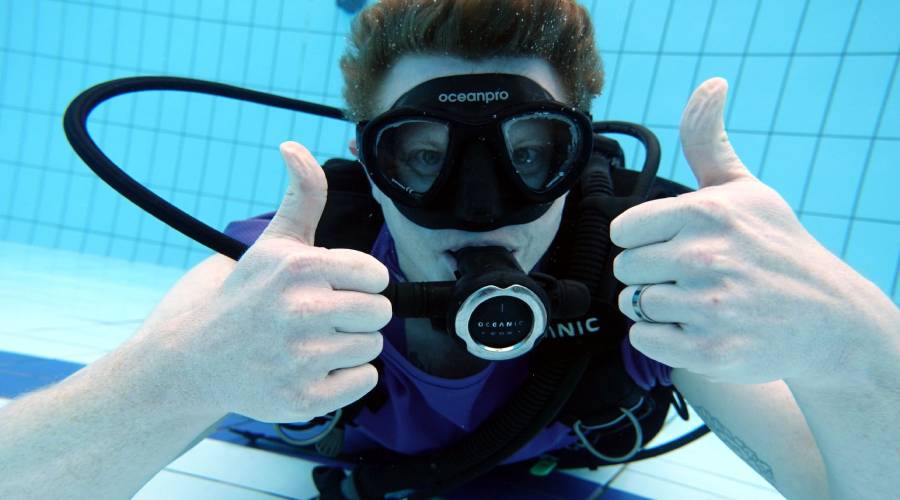
Further Diving Courses
After completing your Open Water Diver certification, you might choose to further enhance your diving skills and experience. PADI offers a range of advanced and specialty courses, including the Advanced Open Water Diver, Rescue Diver, and various specialty courses like Underwater Photography, Deep Diver, Wreck Diver, and more.
Diving Safely: While diving provides numerous therapeutic benefits, safety should always be a priority. It's essential to have proper training and certification before starting any dive. Diving with a buddy, monitoring your equipment, and understanding your physical limits are critical aspects of a safe diving experience.
Diving as Therapy - An Underwater Oasis of Healing
Diving is more than just a sport or recreational activity; it is a potent form of therapy that can help people overcome various physical and mental health conditions. Its therapeutic benefits underscore the profound interconnectedness between humans and nature, and how engagement with the natural world can have restorative effects on our well-being. As more research surfaces in support of diving as therapy, we hope to see its implementation in broader therapeutic practices, providing individuals with a unique, transformative, and healing experience.
Remember, before you begin diving, ensure that you are medically fit to do so, and always dive under the guidance of certified professionals. The ocean, in all its vastness and beauty, awaits your descent into a therapeutic journey.
Diving Sites in Port Blair
Diving Sites in Havelock Island
Diving Sites in Neil Island
.jpg)
.jpg)
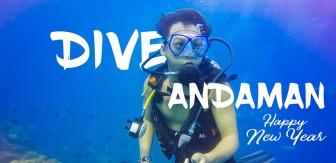
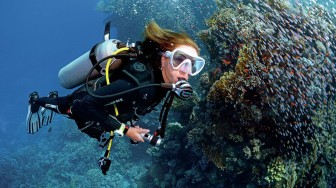
.jpg)